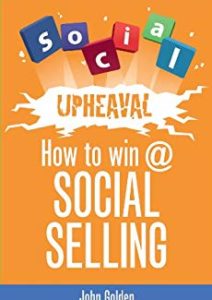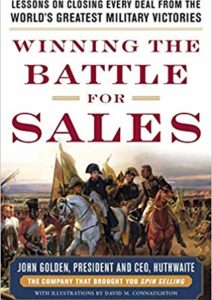This is certainly the era of Big Data — so much so that storage device capacities constantly expand. We’re now up to multiple terabytes with no end in sight.
But just because all of that data is available, and we now have ways to store it, does that mean we should access and try to process all of it?
As you might guess, that’s a mathematical impossibility, if only because the amount of data grows exponentially all the time. So what is the key to confronting this enormous mass of data, and how do successful reps do it?
The Keyword is Relevance
When a computer program is sorting through a huge amount of data, part of its code will be to look for relevance. It will only pick out pieces of data that are relevant to its search parameters. The more relevant the information, the higher it will be rated in importance.
Salespeople should be trained to sort out data in the same way. If a salesperson downloads and tries to store every bit of information on a particular prospect or customer, pretty soon the salesperson will run out of storage space. But more importantly, the ability for the salesperson to actually view and process all of that data will be rapidly exceeded. The result will be nothing but an overwhelmed sales rep.
Just as with a computer program, the salesperson should decide up front what is truly relevant. For example:
- What issues is the prospect or customer encountering that can be solved with our products or services?
- What issues are taking place within the prospect or customer’s marketplace that might negatively or positively affect opportunities?
- Who are the decision-makers in the company that I need to deal with?
- What issues are important to each of those decision-makers?
You’ll notice that the answers to these questions will probably comprise smaller pieces of data–but they’ll be far more relevant and helpful to the salesperson.
Applying to Pipeline Management
This adage of “Less is really more” also applies to pipeline management. How?
There are some salespeople that are driven by “big.” They only sniff out and voraciously go after the biggest opportunities, ignoring the smaller ones. In an effort to make or beat a sales period quota, they’ll frantically go after such big deals, even when they appear within virtual seconds of the close of the sales period.
There is certainly nothing wrong going after big deals–if reps didn’t do that, they would never be closed. But is that all a salesperson should be doing?
In this series on salesperson clarity, we’ve been examining the actions of truly successful salespeople–and here is yet another one. While successful reps certainly don’t pass up big opportunities, they are always carefully and diligently replenishing their pipeline with new opportunities of all sizes. Ideally, they’ve always got as much or more needed to make their quota, given their own closing ratio.
This is an application of “Less is more” to the pipeline itself–many of these deals may seem like “less,” but added up they mean the making or even exceeding a quota.
Successful salespeople know that to do otherwise would be to succumb to the feast-or-famine rollercoaster ride that many other salespeople fall victim to when they allow all their focus to fall upon only “big deals“–especially only in the later stages of the pipeline.
So to the list of successful methods of the best salespeople, we can add this adage and always use it to evaluate information: “Less is more.”











